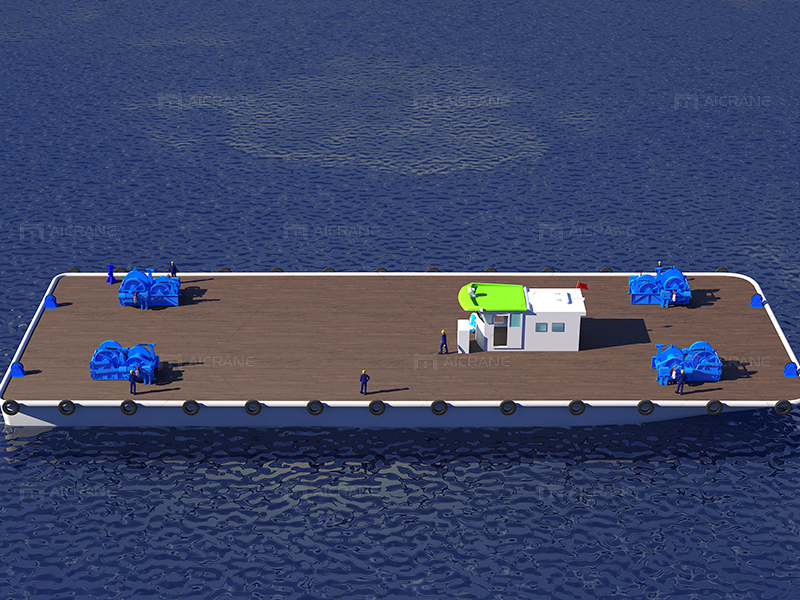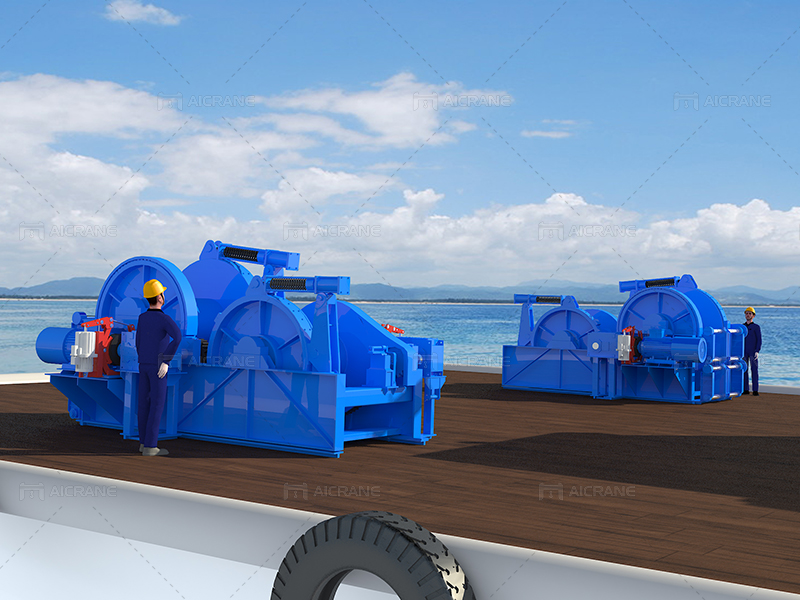In the maritime industry, the efficiency and reliability of mooring systems play a pivotal role in the safety and functionality of vessels. Traditionally, hydraulic systems have been the go-to choice for mooring winches, but in recent years, there has been a noticeable shift towards electric mooring winches. This transition is driven by a myriad of advantages that electric systems offer over their hydraulic counterparts. In this article, we will delve into the key advantages of electric mooring winches, exploring how they are reshaping the landscape of mooring technology.

Energy Efficiency:
One of the primary advantages of electric mooring winches lies in their energy efficiency. Unlike hydraulic systems that constantly require power to maintain pressure, electric winches only consume energy during operation. This results in reduced energy wastage, making electric mooring winches a greener and more cost-effective solution in the long run.
Compact Design and Space Utilization:
Electric mooring winches are inherently more compact and lightweight compared to their hydraulic counterparts. This compact design allows for easier installation in confined spaces on vessels, optimizing deck space and contributing to a more streamlined and efficient vessel layout. The reduction in size also means lower weight, contributing to overall fuel efficiency.
Lower Maintenance Requirements:
Hydraulic systems are known for their intricate network of pipes, valves, and hydraulic fluid that require regular maintenance and checks. In contrast, electric mooring winches have fewer moving parts, reducing the likelihood of breakdowns and minimizing the need for frequent maintenance. This advantage translates into lower operational costs and increased reliability for vessel operators.
Precision Control and Maneuverability:
Electric mooring winches offer superior precision control, allowing for more accurate and delicate maneuvers during mooring operations. This level of control is especially crucial in tight or challenging docking scenarios. Hydraulic systems, while powerful, may lack the finesse required for delicate operations, making electric winches a preferred choice for vessels operating in busy ports or confined spaces.

Silent Operation:
The quiet operation of mooring winches is a significant advantage over the often noisy hydraulic systems. The reduction in noise pollution not only improves the working conditions for crew members but also contributes to a more environmentally friendly operation. This is particularly relevant in environments where noise restrictions are in place, such as in close proximity to residential areas or marine sanctuaries.
Instantaneous Response Time:
Electric mooring winches offer near-instantaneous response times, providing prompt and reliable control during mooring and towing operations. Hydraulic systems, due to their reliance on fluid dynamics, may experience delays in response, potentially compromising the safety and efficiency of the mooring process. The quick response time of electric winches is crucial for vessels operating in dynamic and rapidly changing conditions.
Adaptability to Advanced Control Systems:
Electric mooring winches seamlessly integrate with advanced control systems, allowing for automation, remote operation, and integration into vessel management systems. This adaptability to modern technologies facilitates a more sophisticated and connected approach to mooring operations, enhancing overall safety and operational efficiency.
Cost-effectiveness:
While the initial investment for electric mooring winches may be slightly higher, the long-term cost-effectiveness is notable. The reduced maintenance requirements, lower energy consumption, and increased efficiency contribute to a more economical solution over the operational lifespan of the winch. This cost-effectiveness is particularly appealing to shipowners looking for sustainable and budget-conscious solutions.
Conclusion:
The advantages of electric mooring winches over hydraulic systems underscore a paradigm shift in the maritime industry towards more efficient, sustainable, and technologically advanced solutions. As vessels become more sophisticated and demands for eco-friendly and cost-effective operations increase, electric mooring winches emerge as a compelling choice. Their energy efficiency, compact design, precision control, and adaptability to modern technologies position electric mooring winches as a key player in shaping the future of mooring systems in the maritime sector. To learn more about winches, visit https://winchmachines.com/